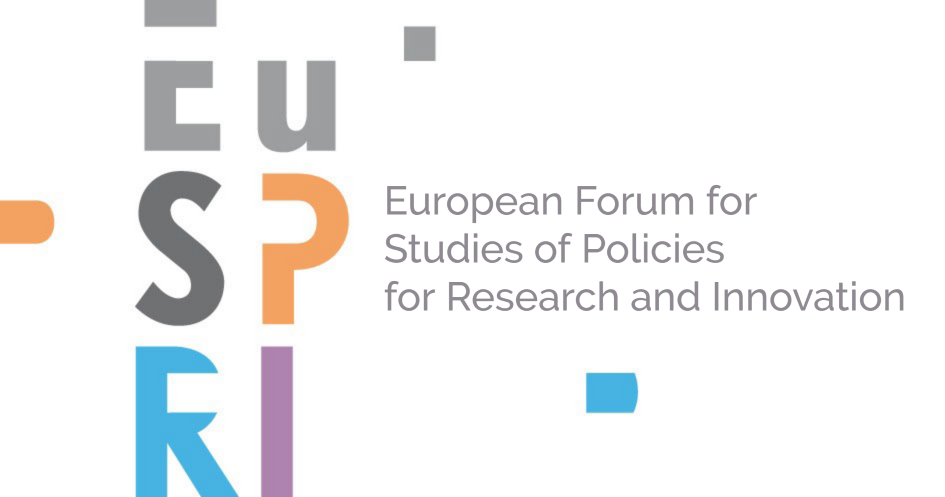Hajikhani, Arash (Espoo (FI) VTT Technical Research Centre of Finland)
Integrating AI in Science and Innovation Policy: Opportunities and Risks
Authors: Arash Hajikhani, David Howoldt, Philip Shapira, Liangping Ding, Cornelia Lawson, Torben Schubert, Andreas Hummler, Carsten Schwäbe, Bernd Beckert, Benedetto Lepori, Catherine Beaudry, Davide Pulizzotto, Daniele Rotolo, Milad Abbasiharofteh
Keywords: Artificial Intelligence, global perspective, ethics,
Abstract:
As science, technology, and innovation (STI) policies increasingly intertwine with rapid advancements in artificial intelligence (AI), including generative AI, and enhanced access to large, so far untapped, data sources, the global community faces both unprecedented opportunities and challenges. This track explores the integration of AI into STI policymaking processes, focusing on how AI can enhance policy design, implementation, and evaluation, while also addressing the associated uncertainties and ethical considerations. With AI’s potential to accelerate discovery and drive societal change, the question arises: how can STI policies embrace and influence this technology in a trusted and comprehensive manner?
The development of STI policies that rely on scientific evidence and innovation-driven insights will be significantly impacted by the growing role of AI in scientific research. AI is not only transforming the way scientific research is conducted but also influencing how we evaluate the integrity and credibility of these processes. The increasing use of AI to assist in drafting scientific content introduces critical questions about validation, accuracy, and transparency. As AI increasingly shapes scientific discourse, it becomes essential to rethink the established frameworks to evaluate the quality and trustworthiness of scientific and technological advancements.
This track will investigate key questions central to the theme of the conference—Shaping Societal Futures with STI Policies—by addressing how generative AI, big data, and automation can be harnessed for supporting policymaking capable of rapidly addressing unpredictable social, ecological, and economic developments. To do so, the track will explore co-design processes in AI-enabled policy development, the human role in AI-driven policy cycles, and the qualitative/quantitative assessments to evaluate AI’s impact on innovation and societal well-being. This includes the role of the state in the regulation or provision of AI or relevant AI inputs.
Related topics that the track is keen to examine include how AI challenges our traditional approaches to validating scientific outputs (including those used to inform policymaking) and ensuring the integrity of research and its reproducibility. As AI becomes a key tool in scientific inquiry, how can we ensure that the outcomes of AI-driven research maintain their rigour and reliability? How should policy frameworks evolve to accommodate these changes and maintain trust in science and technology? What are the best practices in the current use of generative AI and big data for STI policies? Additionally, we will consider the transformative impact of Large Language Models (LLMs) and generative AI, which are currently a significant area of hype and interest.
Core Themes and Research Questions:
• Global Perspectives on AI in STI
• How can policies ensure equitable AI adoption in scientific, technology, and innovation endeavours across countries with varying resources?
• What lessons can be drawn from both the Global North and South regarding AI’s impact on STI policy?
• New Methods for Assessing AI in STI
• How can the effectiveness of STI policy be assessed in an era where AI plays a significant role?
• What metrics capture AI’s contributions to scientific progress and societal innovation?
• What role can AI play in science and technology transfer, particularly in knowledge valorisation? Which new methods have emerged, and what are the experiences with these new methods?
• AI to Support STI Policymaking
• What are the opportunities and risks in utilizing AI to co-design and co-create policies? How can AI support stakeholders, including policymakers and the public, to participate effectively in policy development?
• How can AI-driven analysis contribute to ‘better’ policy mapping, structuring, and implementation across diverse topics such as sustainability, economic growth, and societal resilience? What can be learned from these examples in terms of barriers and enablers?
• Can AI-driven methods be applied to geo-text data to identify place-specific problems, prioritize policy actions, and enhance stakeholder engagement?
• What can be learned from private organisations’ strategies integrating AI that can inform the integration of AI into policy contexts?
• Ethics, Trust, and Human-AI Collaboration in STI Policymaking
• In a future where AI is an integral part of policymaking, how can the role of human decision-makers be redefined? How do we ensure that human oversight, ethical consideration, and accountability remain central to AI-integrated policymaking?
• How can we establish ethical frameworks and governance structures to maintain public trust in AI’s growing role in scientific research and policymaking? What is the role of public authorities in the provision of such AI?
• How can LLMs be utilized to support the creation and management of knowledge and guide various stages of the innovation process?
Track Format:
The track will feature a combination of early-stage and full research paper presentations designed to foster policy dialogue and debate the applications and the ethical implications of AI in STI policymaking. We encourage contributions from a diverse range of disciplines, including generative AI research, policy studies, innovation management, and ethics. Additionally, we aim to involve policymakers, business actors, and researchers in a co-creative dialogue about the future of AI in STI policy.
